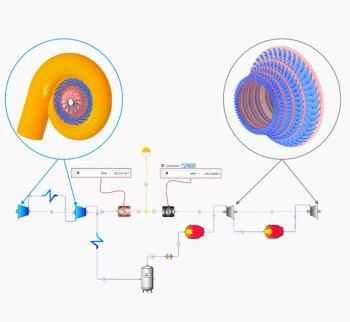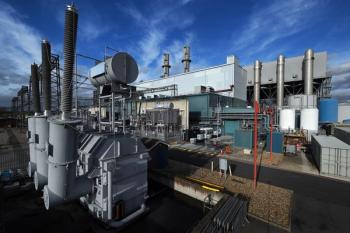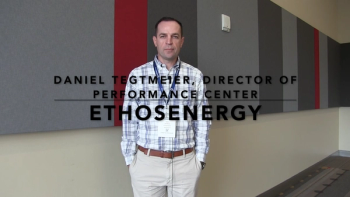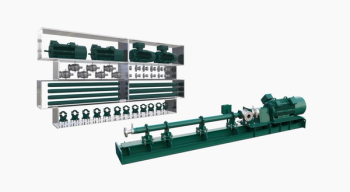
MAN Energy, Quest One Open Electrolysis Gigahub in Hamburg
At full capacity, the new gigahub will enable the automated series production of PEM stacks with a potential total electrolysis capacity of more than 5 GW per year.
A subsidiary of MAN Energy Solutions and formerly known as H-TEC SYSTEMS—Quest One—opened a new gigahub in Hamburg, Germany, for the serial and automated production of electrolysis stacks. Serial production of PEM electrolysis stacks, the technological centerpiece of electrolyzers, will increase green hydrogen availability. Series production also allows green hydrogen to become a reliable alternative to fossil fuels.
“Today we are opening Europe’s most modern production plant in the hydrogen economy,” said Uwe Lauber, CEO of MAN Energy Solutions. “MAN Energy Solutions and Quest One are thus making a contribution to the establishment and industrialization of sustainable future technologies in Germany and Europe. We are thus investing in the future of Germany as a business location and in the energy transition as a task for society.”
The gigahub was built in under two years on a site measuring over 26,000 square meters in Victoria Park—the floor area measures over 12,000 square meters. The green roofs are equipped with a photovoltaic system and platinum certification from the German Sustainable Building Council is being targeted for 2025. The site will also serve as a customer and training center.
At full capacity, the gigahub will enable the automated series production of PEM stacks with a potential total electrolysis capacity of more than 5 GW per year. Electrolysis stacks split water into oxygen and hydrogen with renewable electricity. The new production and development site enables Quest One to avoid 1% of global greenhouse gas emissions by 2050 through electrolyzer usage. Quest One is also researching new generations of PEM stacks.
“The hydrogen economy will change massively in the coming years and decades, and we will be dealing with volumes that are almost unimaginable today,” said Robin von Plettenberg, CEO of Quest One. “Thus, the electrolysis industry will become one of the key industries of the future. With our gigahub, we are opening one of the most modern sites for PEM technology, development and production in the world here in Hamburg. However, this also emphasizes that we want to become a player in the hydrogen economy.”
The automated stack production is performed on two production lines: “Titan” with a linear transport system and “Gerd” with swiveling arm robots. Newly automated processes, previously carried out manually, reduce stack-production time by approximately 75%. It also increases the company’s efficiency and precision in manufacturing and optimizing logistics processes, resulting in consistent product quality and fast delivery times.
“The availability of green hydrogen is a crucial factor for the energy transition and the competitiveness of the German industry,” said Dr. Peter Tschentscher, First Mayor of the Free and Hanseatic City of Hamburg. “The opening of the Quest One Gigahub is a milestone in this respect. Hamburg is becoming a leading hydrogen location in Germany. Together with our international energy partners, we are strengthening the Port of Hamburg as an important transshipment point for hydrogen in Europe.”
Newsletter
Power your knowledge with the latest in turbine technology, engineering advances, and energy solutions—subscribe to Turbomachinery International today.




